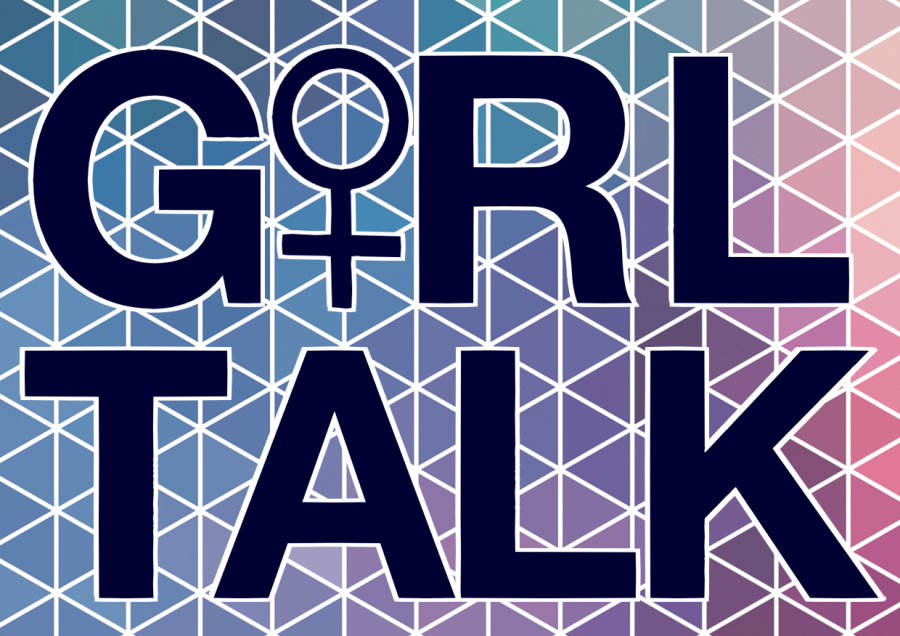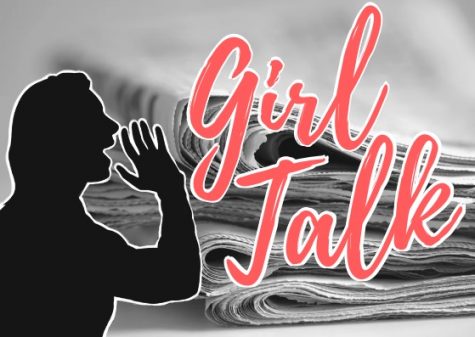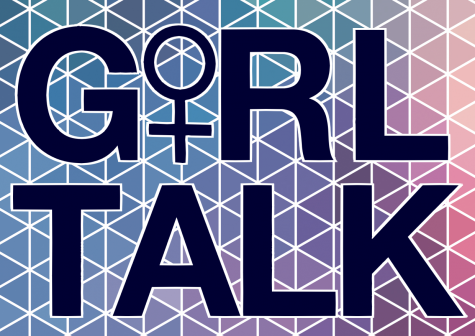Girl Talk: Defining the modern feminist
I am a proudly proclaimed intersectional feminist. In the hallways of high school, this statement gets a lot of eye rolls. I find myself having to constantly recite the definition of feminism in order for people to understand that feminism isn’t the belief that women are more superior, or that being a feminist automatically makes me less feminine than the next woman.
Merriam-Webster defines the term “feminism” as, “the theory of the political, economic, and social equality of the sexes.” However, in today’s popular culture, feminism has morphed into much more. With each Girl Talk article that I produce, I end it with the phrase, “Girl Talk is a platform where we talk about girls, not for girls. Join the conversation.” I believe this statement accurately summarizes many of the preconceived notions that come with the concept of feminism.
One single person cannot fully represent an ideology or movement. Therefore, within my Girl Talk articles, I cannot speak for every girl ever. Additionally, the issues that feminists are involved within don’t just affect girls. In order for gender equality to exist within the modern world, feminism needs to evolve with the times. Additionally, when addressing issues that pertain to society, there are also issues that go beyond the scope of being a female.
Hyper-masculinity, lack of mental health resources, societal pressures; all of these things the majority of teen boys can attest to being familiar with. Despite common belief, intersectional feminism is also working to address those issues. The overall theory of this type of feminism encompasses a variety of different backgrounds.
Intersectional feminism aims to cover a broad spectrum of issues, it cannot possibly represent every important issue that impacts our society. The articles that I produce for Girl Talk are a small portion of the activism and necessary activism that needs to occur.
Girl Talk is a platform where we talk about girls, not for girls. Join the conversation.

Abbey Malbon is in 11th grade and is a spotlight writer. She is involved with Literary Magazine, Best Buddies and Fresh Connect. She spends her free time...








Unstable • Oct 13, 2018 at 5:52 pm
As a guy I thought this was going to just be you getting triggered. I clicked on this for a good laugh. I want woman to have equal rights, but I hate the people who think men as some evil villain to the world. So thanks for that.
Voice Of the Aristocracy • Mar 21, 2018 at 9:44 pm
People just because you put “Ism” in front of a word does not make it a real thing.
Ginger • Mar 9, 2018 at 8:01 am
I absolutely agree with this. I consider myself a original feminist. I do what feminism was designed to do in the beginning of time with equal rights. I however try to strive away from the word feminist because today it has so many mixed meanings about women hating men, or trying to make our gender more superior which is absolute crap. I instead call myself an equalist when people ask me if I am feminists. For some reason saying that made up term that I created causes people to like me more even though it is exactly what feminism is suppose to be about- equality for all.
confused • Feb 28, 2018 at 12:22 pm
What’s the point of you telling me the actual, original definition of ‘feminist’ when you’re also trying to convince me that the definition has changed? Why title the article about the “modern” feminist instead of titling it about the term “intersectional”? The provided definition, defended by the author, makes it clear what ‘feminism’ is (equality between sexes), no matter the time period. It’s good to be educated on all types of social issues, but you can’t say the word has changed when it hasn’t. It appears there are just different ways of labeling yourself or categories within the umbrella term ‘feminism’.
Hello • Mar 6, 2018 at 8:09 pm
She told you the dictionary definition to establish a baseline so she could further explain how feminism has evolved. Don’t get hung up on it. She said so much more than that.
axiet • Apr 25, 2018 at 8:50 pm
Actions speak louder than words.
прямой белый самец • Feb 28, 2018 at 12:13 pm
This is the best article yet. I can greatly appreciate how abbey touched on how the lives of men that are affected by today’s society. there is still a flaw, however. abbey mentions how “intersectional feminism is also working to address those issues”, but how can you solve male issues with a female-biased movement? Help for men has been turned down by those you say want to help the issues we face. Example of this is the shutdown of national men’s day at the University of York, if the people who did this wanted equality, this does not show it. the fact that women all around the nation are allowed to march about their problems without their marches being shutdown obviously shows the disparity between problems. saying feminism is the solution to both genders’ problems is incorrect because both deal with very different problems and proposing that using feminism to solve male problems is just incomprehensible. if we want to solve both problems we need egalitarianism and if we want to solve male problems, we use masculinism, not feminism
Hello • Mar 6, 2018 at 8:15 pm
This is why I am a supporter of egalitarianism. Intersectional feminists mean well but trying to cram men’s, women’s, race, and disability issues-not to mention classism- into the list of priorities of feminism is like trying to add every topping you see onto your ice cream sundae. The result is confusing and muddled.
na • Feb 28, 2018 at 8:35 am
I agree with what you’re saying here. But I don’t think you’re addressing what intersectional feminism actually is. Intersectional feminism is the acknowledgment that all women must be equal before women can be equal to men, most specifically women of color, disabled women, transgender women. Intersectional feminism means advocating for women who are marginalized and not equal to their white counterparts.
4chaing.orge • Feb 28, 2018 at 2:21 pm
>Intersectional feminism means advocating for women who are marginalized and not equal to their white counterparts.
bb-BUt MmYy ooOpPREssioNN pOOinTs
kek
Voice Of the Aristocracy • Mar 4, 2018 at 11:06 am
I’d like to point out that these days the whites are more discriminated against than any other group in America. Whites often cant state their opinions because they’ll automatically get branded as racist. Whites also don’t get the same opportunity in colleges now because the colleges rear being branded racist if they accept a white student instead of a minority one. there’s also not a white history month because that would be “Racist” but yet they have months for every other race.
So if anyone needs to be liberated from discrimination NOW it’s the whites.
darkstripe • Mar 5, 2018 at 12:24 pm
i’m placing a solid bet that this guy supports a “straight pride month” as well
прямой белый самец • Mar 6, 2018 at 10:42 pm
is there a problem with straight pride? you can be proud of being homosexual but not straight? how does that make sense?
darkstripe • Mar 9, 2018 at 9:04 am
i mean lgbt people are still discriminated against in our country and there’s still an disproportionate overwhelming majority of straight people in the media compared to lgbt people, and there’s honestly so much arguing i could do over the importance of lgbt pride month and why pretty much every other month besides june is a straight pride month, but heyy i guess it’s whatever
Hello • Mar 6, 2018 at 8:05 pm
I want to say something serious but judging by your username (VOTA) I’m 95% this is satire; I’ll just be going.
darkstripe • Feb 27, 2018 at 9:08 am
1. man this comment section is going to be wild
2. i think the word feminism shouldn’t be used for that kind of philosophy. most people assume it describes people who hate men (misandrists), and many misandrists use it to justify themselves (the first thing that comes to my mind is the TERF ideology, which is a very gross viewpoint). i prefer the term equality-supporting for the idea that both sexes should be equal and neither should be held to the standards of hyper-masculinity or hyper-femininity. feminism has an entirely different meaning now in modern culture that i refuse to stand by, so i don’t define myself as one
Caleb Berry, a proud patriot • Feb 28, 2018 at 11:41 am
Darkstripe, There are two things that I agree with in your comment. Modern feminism has a different meaning, and your refusal to stand by it. I think its awesome that you think for yourself and look through the curtain of manipulated statements groups make.
I disagree with your statement saying women and men are equal. Men and women are very different. What matters is that both men and women have equality of opportunity. Still, no matter how equal things are between the sexes there will be different outcomes, hence the drastic difference between men and women in the Labor force. Society (most importantly parenting) has a voice in what people of either sex will result to be later as adults.
This inst to say all gender norms are bad. Some gender norms are created by natural human characteristics. Example being a man’s physical strength and a mans normality of doing more physical work. This is a masculine characteristic, and this is a good thing. This turns bad when we expect all men be strong. This is similar to the feminine characteristic of Care-taking because of most women’s higher dedication to society. It turns bad when we expect all women to care of others.
(There is also one thing I want you to look up. I think it will help you with defining your views. Look up egalitarianism)